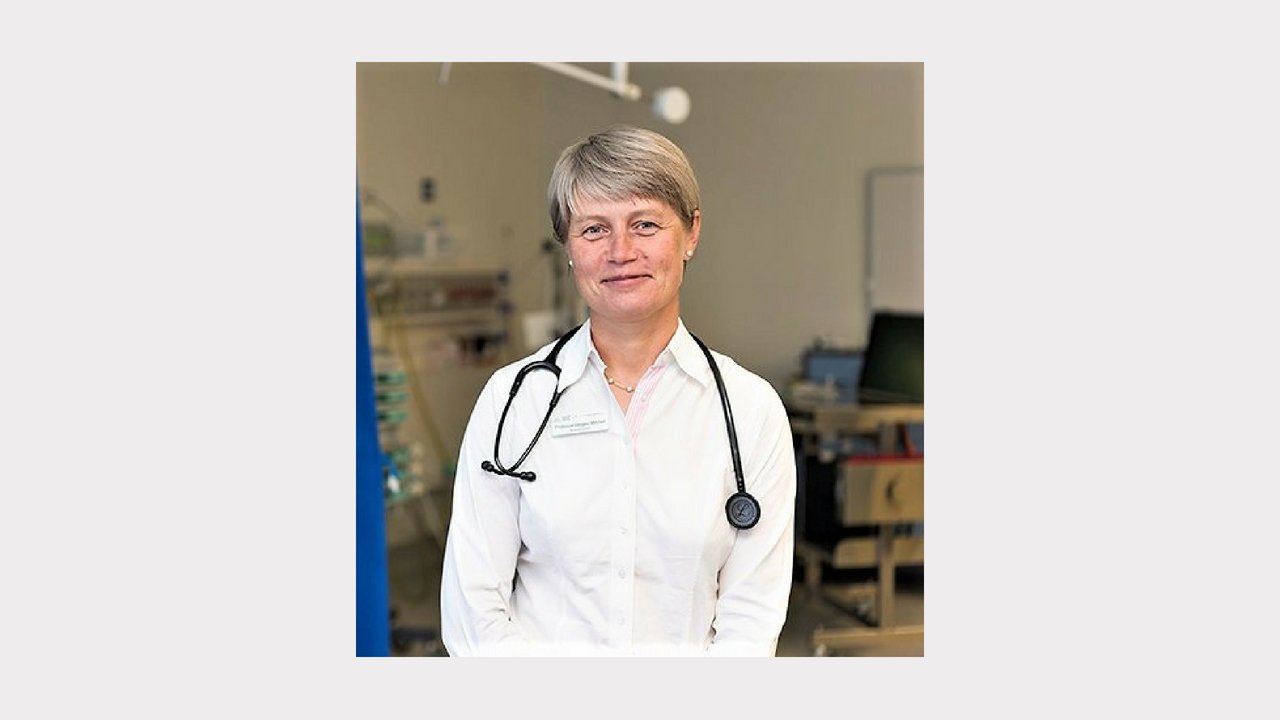At the End of Life’s Journey: A time to bring everyone together
At the End of Life’s Journey: A time to bring everyone together
by Professor Imogen Mitchell, Dean ANU Medical School and Senior Staff Specialist, Intensive Care, The Canberra Hospital
Monday, May 21, 2018
As a practising intensive care specialist for over 21 years, I have had the privilege to be with many patients and families at one of the toughest times in their lives. Tough for multiple reasons not least someone’s life has just been placed on a knife edge within the confines of a noisy, frenetic intensive care unit. This experience can be terrifying, confusing, bewildering with a strong sense of losing control over decisions including life and death.
One of the major challenges is the burden families carry when faced with making decisions about their dying loved ones in the intensive care unit. This burden is created when, as doctor, we are unable to chat directly to their loved one as they are too confused or on a ventilator unable to communicate meaningfully. This leaves the family with trying to help make informed decisions around their dying loved one. As doctors, it is important to get a sense of what would be important to their loved one as they die and what goals they would have wanted to achieve. Sadly, all too often, I am talking to families who are unaware of what their loved one wishes and even worse unaware of just how unwell their loved one is. We are then left second guessing.
In an era when shared decision making is paramount, why are we leaving one of the most important decisions of our lives to others, who are not familiar with what is important to us at the time of dying. It seems we are all afraid to talk about death and dying. Yet, as Benjamin Franklin so famously said “nothing can be said to be certain, except death and taxes”, we appear to shy away from thinking of what will be important to us as we die and letting others, that we trust, know. We are happy to plan for the births of our children, our weddings and our careers but not for the inevitable, our death. As a community, we should not fear talking about death. Perhaps talking about death may even be a guarantee of delaying the inevitable since it is a rarity of coming across families who have chatted about their wishes and wants as they die.
As doctors, we add to the inability of patients being unable to fulfil their goals of care including where they want to die and who they want around them. Doctors’ innate desire to diagnose, treat and potentially cure patients of their illnesses leaves them with a feeling of defeat should their patients be seeking alleviation of symptoms rather than cure. As a result, patients with disease trajectories that are only going to deteriorate over a known time period are left with little understanding of their own disease trajectory and the critical importance of having a goals of care, including end of life care.
As the chronic condition deteriorates and with no clear direction of care, patients are frequently admitted and readmitted to acute hospitals with the intent of curing their acute deterioration. As many acute patients are admitted out of hours, the junior, clinically inexperienced, doctors are left caring for these patients. Short term management plans are put in place with little consideration of longer term issues. In the event goals of care are discussed, the style and manner in which the information is conveyed is not always helpful. Junior doctors are very busy and, by virtue of their junior years, may not have the skills to have empathic and clear end of life care conversations.
Without clear direction of goals of care, critical care is asked to intervene to manage acutely deteriorating patients. Snap decisions are made on the run and suddenly patients and families find themselves in the intensive care unit surrounded by machines and a bevy of doctors and nurses. The great fortune for patients and families is senior intensive care doctors, more often than not, have the time and the skill to talk to families about the challenging subject of dying, which can set a clear pathway forward.
When it comes to dying, we need to bring everyone together on to the same page. As members of the community, we should not be afraid of planning for things, which will be important to us in our last few years, months and days. As doctors, we should not shy away from chatting about patients’ goals of care, which need to include end of life care. These goals need to be made jointly with patients and skilled communicators. And importantly, no matter where you are in Australia, we all deserve to die symptom free in a place of our choice and with those we choose to be with. It’s time to bring everyone together to ensure we can make this possible.
